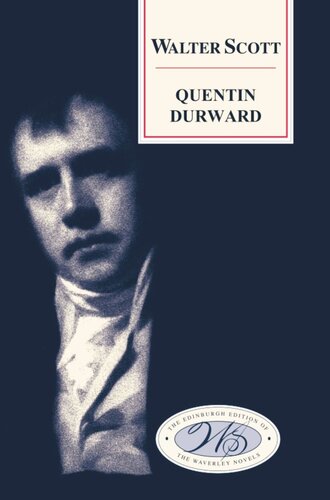

Most ebook files are in PDF format, so you can easily read them using various software such as Foxit Reader or directly on the Google Chrome browser.
Some ebook files are released by publishers in other formats such as .awz, .mobi, .epub, .fb2, etc. You may need to install specific software to read these formats on mobile/PC, such as Calibre.
Please read the tutorial at this link: https://ebookbell.com/faq
We offer FREE conversion to the popular formats you request; however, this may take some time. Therefore, right after payment, please email us, and we will try to provide the service as quickly as possible.
For some exceptional file formats or broken links (if any), please refrain from opening any disputes. Instead, email us first, and we will try to assist within a maximum of 6 hours.
EbookBell Team

4.1
100 reviewsGBS_insertPreviewButtonPopup('ISBN:9780748605798);
Going back to the original manuscripts, a team of scholars has uncovered what Scott originally wrote and intended his public to read before errors, misreadings and expurgations crept in during production.
Quentin Durward is a young Scotsman seeking fame and fortune in the France of Louis XI in the fifteenth century. He knows little and understands less, but Scott represents his ignorance and naiveté as useful to 'the most sagacious prince in Europe' who needs servants motivated solely by the desire for coin and credit and lacking any interest in France which would interfere with the execution of his political aims. In Quentin Durward Scott studies the first modern state in the process of destroying the European feudal system.
By far the most important of Scott's sources for Quentin Durward is the splendid Memoirs of Philippe de Comines. Comines, who has more than a walk-on role in the novel itself, was trusted councillor of Charles the Bold of Burgundy until 1472, when Louis XI persuaded him to enter his service. Scott's contrasting portraits of Louis and Charles, crafty king and fiery duke, essentially derives from Comines, whose memoirs are generally regarded as the first example of modern analytical history rather than chronicle. But it is as story that Quentin Durward succeeds, and it is one of Scott's most absorbing tales.